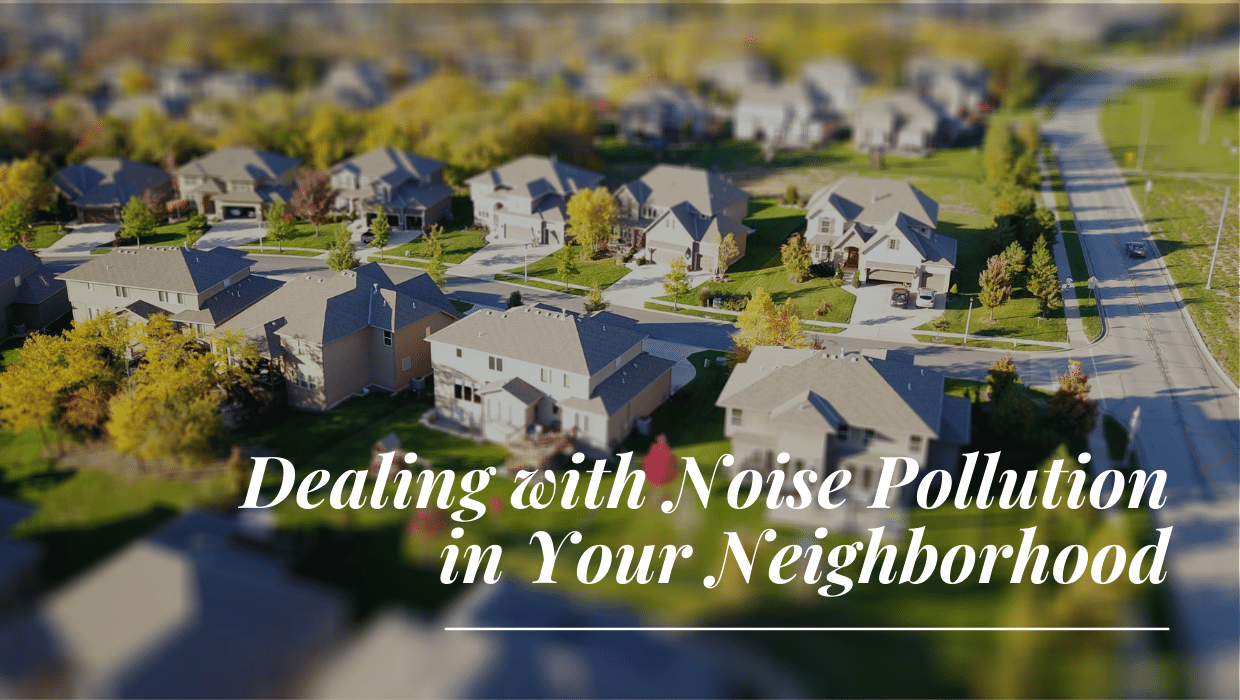
- Common Fears About Hearing Tests - May 28, 2025
- Best Hearing Aids for Active Lifestyles - May 16, 2025
- A Guide to Different Hearing Aid Styles - May 6, 2025
Think about the noises you hear every day. Your neighborhood is probably a noisy place, with children yelling outside, the noise of traffic from a nearby road, or even the sound of your air conditioner or vacuum cleaner creating daily noise. Occasional noise is nothing to worry about, but if you’re dealing with a lot of noise pollution in your neighborhood, you’ll need to take steps to reduce noise and protect your hearing.
What is Noise Pollution?
According to the World Health Organization, noise pollution is noise that “seriously harms human health and interferes with people’s daily activities at school, at work, at home and during leisure time.” This noise pollution causes disturbances in our daily life, makes it hard to relax, and can disrupt our sleep. Millions of Americans are exposed to noise pollution every day at work, at school, and even at home.
Sources of Noise Pollution
Lots of sounds in our neighborhoods contribute to noise pollution. Some of these sounds come from insind our homes, while others come from our neighbors or the surrounding streets. Some of the sources of indoor noise pollution include:
- Loud music from your kid’s room
- Vacuuming the home
- Loud kitchen appliances
- Turning up the TV to a high volume
- A crying child
- A loud air conditioner
Outdoor sources of noise pollution in your neighborhood include:
- Leaf blowers
- Power tools
- Honking cars
- Noisy vehicles or motorcycles
- Traffic noise
- Emergency sirens
- Barking dogs
- Noise from a nearby construction site
- Noise from a nearby airport
Our neighborhoods are often extremely noisy places, and being at home in all this noise isn’t exactly peaceful.
What Happens When You’re Surrounded by Noise?
All this noise pollution can start to take a toll on your health. One of the first things you’ll notice is that you get easily frustrated or irritated by noises. You may even feel your heartrate go up or your stress levels rise in response to yet another loud sound. Ongoing noise can affect your mental and emotional state.
Noise pollution can also lead to a lot of physical challenges, including chronic stress, trouble concentrating, and sleep deprivation. On top of that, you’ll have a higher risk of heart disease and even diabetes. You and your family will also be more likely to have a hearing loss or develop tinnitus.
Dealing with Noise Pollution
You can’t force the entire city to be quiet, but there are a few ways you can deal with noise pollution and minimize the negative effects of noise in your neighborhood.
- Be aware of the volume: The first way to deal with noise is to think about the volume of the sounds around you, and recognize when loud is too loud. Lots of sounds in your neighborhood can harm your hearing. If you need to yell to have a conversation, it’s too loud.
- Protect your hearing: If the noises around you are too loud, protect your hearing! Make sure you always wear hearing protection when you’re doing yard work, or when you use noisy appliances. Make sure you also turn the volume down if the radio or TV are too loud.
- Put in a rug: One way to reduce noise in your own home is to add some rugs to dampen sounds. You can make your home a quiet spot in the middle of all the noise, and give your ears a rest when you’re home.
- Invest in quiet appliances: Hearing loss can also be caused by continuous exposure to noise that leads to listening fatigue. You can make your home quieter by investing in quiet appliances, and sealed windows to reduce the noise in your home.
Schedule a Hearing Test
If you live in a noisy neighborhood and you’re worried you might have hearing loss, then it’s time to schedule a hearing test. Our hearing health specialists will help you find out if you have a hearing loss. We’ll also answer all your questions about noise pollution in your neighborhood, and give you more tips on how to reduce the noise levels in your home and yard. If you have a hearing loss, we’ll find the perfect hearing aids so that you can hear clearly at home and in your neighborhood.
